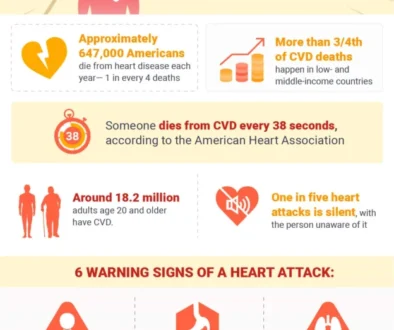The Therapeutic Power of Poetry: What’s the Evidence?
*Read the original article here: https://medium.com/inspire-the-mind/the-therapeutic-power-of-poetry-whats-the-evidence-208fa59fe09b
By Rachel Kelly
In my last piece, I spoke about my personal experiences with poetry, and the life-changing impact it has had on me, so much so that I’ve written a new book on the links between verse and our emotional wellbeing. However, now I am here to share the evidence that attests to poetry’s power to heal our minds.

I set about to find what research existed, and came across a number of studies which I divided into three categories, depending on the way we interact with the poems: reading or listening, writing, and sharing.
1. Reading or listening to poetry
First, let’s investigate the efficacy of reading or listening to poetry to boost our wellbeing.
One way listening to verse can help is by reducing pain, a role that music can also play. A 2016 study of cancer patients found that listening to both music and poetry produced a similar improvement in pain intensity. The two therapies also affected ‘depression scores’, but as a bonus for the power of literature, only poetry increased ‘hope scores’, a measure of how hopeful subjects felt.
A second way in which listening to or reading poetry can help us is by improving our memory. A 2015 study found that stroke patients who read poetry improved their thinking powers, or “cognitive function”, which in turn improved their capacity to cope with stress.
A third way that reading poetry can help our wellbeing is in supporting us when we experience difficult feelings. We can feel less alone, for example, if we remind ourselves that others have felt likewise. The same 2015 study about stroke patients also found that patients experienced poetry reading as cathartic. That was because many of the poems in the study expressed sadness, which helped patients who were navigating their own feelings of loss.
Another 2021 study also found that reading poetry helped youngsters with challenging emotions. The study, published by the American Academy of Pediatrics, evaluated the effects of both reading and writing on a group of 44 hospitalised children. The children were given poetry-writing kits, with paper, pens, markers, and writing prompts, and also given poems to read, including Hope is the Thing with Feathers, by the American poet Emily Dickinson, one of the poems featured in my own new book about poetry’s therapeutic powers.
The study found reductions in fear, sadness, anger, worry and fatigue among the children. The children reported that reading poems helped both by allowing them to process their feelings, and also by providing a welcome distraction from stress. It also helped them reflect on their feelings.

2. Writing Poetry
Now let’s look at the second main category of research: whether writing poetry can aid our mental health.
Studies show that putting thoughts down on paper can help make sense of whatever experience a person is going through. Here are a few examples.
One 2015 paper records the thoughts of an adolescent girl facing spinal surgery. During psychotherapy, she tracked and narrated her experiences through her own poems, which proved an “empowering method” to make “personal sense of challenging experiences” .

Another reason writing poetry can encourage healing is because people can be gentler and more compassionate about themselves when they express their feelings in a poem. A 2018 paper explored the efficacy of writing poetry as a “means to help people living with chronic pain to explore and express their narratives in their own unique way.” The paper went on to contend that “[t]he cathartic poem is an attempt at self-healing through self-empathy”.
In a nice detail, it also turns out that a final way writing poetry can help is that it improves our memory (just like listening to poetry can also help with memory). A better memory in turn can increase an individual’s ability to cope proactively with stressful events and is associated with greater recall of medication instructions and turning up to appointments, all of which can help people to lead healthier lives.
3. Sharing Poetry
A third way poetry may be therapeutic is that healthcare professionals, by sharing poems during their training, can become more empathetic towards their patients. Poetry has been used to develop greater emotional awareness among nurses, to take one example. Anecdotally, therapists and psychiatrists have also told me how important literature and art have been in their own training and their efforts to understand their patients.
Beyond the specific example of healthcare professionals, a final area in which poetry can be helpful is when people share poems between themselves. To paraphrase the poet Paul Celan, a poem is like a handshake: it creates bonds between people. Poetry, and the creative introspection it fosters, can help individuals feel more connected to themselves, to those around them, and to the external world as a whole. Here the evidence is largely anecdotal and reflects my own experience running poetry workshops in prisons and for mental health charities.
Beyond the anecdotal, however, there are also some interesting pockets of research. Take the example of two Harvard students, David Haosen Xiang and Alisha Moon Yi, who wrote in a 2020 article in the Journal of Medical Humanities about their experience of leading a series of virtual poetry workshops with local library systems in Cambridge and Las Vegas. Their aim was to help participants form “meaningful social relationships with each other”.

Looking at all this research, the evidence does suggest that ‘poetry therapy’ can work, especially in the three areas of reading and listening to poetry, writing poetry and using poetry in training healthcare professionals.
Of course, we need more evidence about the ability of poetry to improve our mental health. But I feel hopeful that that will emerge, given my own experience of how sharing poems can help us all feel a greater sense of belonging. After all, with a poem at your side, you will never walk alone.
Rachel Kelly’s new book You’ll Never Walk Alone: Poems for Life’s Ups and Downs is published by Yellow Kite.



